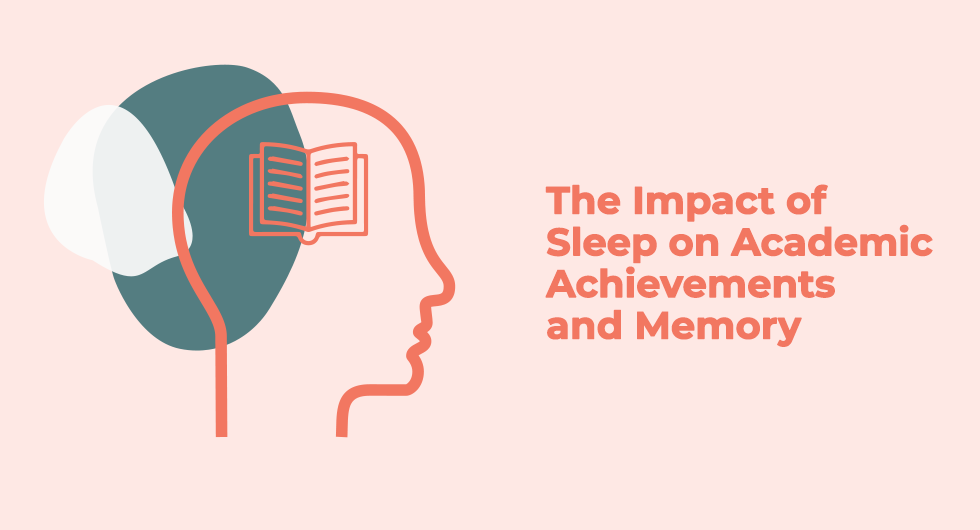Sleep, often underestimated in its importance, is crucial not just for physical and mental health but also for cognitive functions, including learning and memory. Research consistently shows that better sleep can lead to improved academic achievements and enhanced memory capabilities.
For students and lifelong learners alike, achieving better sleep can be a transformative strategy to unlock their full potential. This article explores the multifaceted role of sleep in supporting academic success and memory with the help of the Evolv28 device, underscoring why better sleep practices are essential for educational excellence.
The Science of Sleep and Learning

The Science of Sleep and Learning
Sleep is more than just a period of rest; it’s a complex and dynamic process essential for brain function, particularly in learning and memory. The brain cycles through multiple stages of sleep, including rapid eye movement (REM) and non-REM (NREM) sleep, each playing a crucial role in cognitive processes.
Numerous studies underscore the importance of quality sleep for academic performance. For instance, research conducted at major universities has shown that students who regularly receive better sleep achieve higher GPAs than those with poor sleep habits.
Furthermore, well-rested students often report better focus and faster comprehension during lectures, leading to more effective studying and information retention.
By prioritizing better sleep, students can enhance their brain’s ability to process and retain information, which is essential for successful learning outcomes.
The connection between better sleep, learning, and memory is so strong that improving sleep quality is often seen as a direct investment in one’s educational achievements.
Benefits of Better Sleep on Memory
Better sleep has a profound impact on memory, enhancing both the retention and recall of information. This connection is critical for students and professionals alike, as memory plays a central role in learning and academic success.
- Enhanced Memory Consolidation: Sleep facilitates the consolidation of memory, which is the process of converting new, short-term memories into more stable, long-term ones. During the deeper stages of sleep, such as slow-wave sleep, the brain replays the day’s learning experiences, strengthening neural connections. This not only solidifies what we have learned but also makes it easier to access these memories later.
- Improved Recall Abilities: Individuals who get better sleep are more likely to excel in tasks that require recall. Studies have shown that REM sleep, in particular, enhances associative memory, which is the ability to remember a piece of information in connection with another. For example, students who get adequate REM sleep are better at solving complex problems and synthesizing information during exams.
- Preventing Memory Decay: Regularly achieving better sleep can also help prevent the decay of memory over time. This means that the knowledge retained isn’t just more accessible but also lasts longer. This is crucial for long-term educational pursuits, such as degree programs and professional qualifications.
Research supports these benefits, with numerous studies indicating that students who maintain a routine of better sleep report significantly better memory performance compared to their sleep-deprived peers.
Practical Tips for Achieving Better Sleep
Achieving better sleep is a goal that requires attention to several aspects of daily life, from habits to the environment. Here are some effective tips for improving sleep hygiene:
- Establish a Consistent Sleep Schedule: Go to bed and wake up at the same time every day, even on weekends. This regularity helps set your body’s internal clock and improves the quality of your sleep.
- Create a Bedtime Routine: Develop a relaxing pre-sleep routine to signal to your body that it’s time to wind down. This could include reading a book, taking a warm bath, or practising light stretches or meditation.
- Optimize Your Sleep Environment: Ensure your bedroom is conducive to sleep. This means keeping it cool, quiet, and dark. Invest in a good quality mattress and pillows to support a comfortable night’s sleep.
- Limit Exposure to Screens Before Bed: The blue light emitted by phones, tablets, computers, and TVs can interfere with your ability to fall asleep. Try to avoid these screens for at least an hour before bedtime.
- Watch Your Diet: Avoid large meals, caffeine, and alcohol before bed. These can disrupt sleep or prevent you from falling asleep.
- Exercise Regularly: Regular physical activity can help you fall asleep faster and enjoy deeper sleep. However, don’t exercise too close to bedtime, as it might have the opposite effect.
- Manage Stress: Try to resolve your worries or concerns before bedtime. Techniques such as journaling, deep breathing, or using a worry doll can be beneficial.
- Consider a Sleep Aid: If lifestyle changes aren’t enough, a sleep aid like Evolv28 might be helpful. Always consult with a healthcare provider before starting any new medication.
How does the Evolv28 device help with better sleep?

The Evolv28 wearable device is designed to significantly enhance sleep quality through its innovative features and technology. Here’s how it helps in achieving better sleep:
Innovative Technology: The device stands out due to its groundbreaking technology, which includes generating programmable ultra-low frequency magneto-electric waves. These waves are essential for harmonizing brain waves, which can help stabilize mood, enhance concentration, and promote better sleep by aligning the brain’s natural rhythms with optimal sleep cycles.
Low Magnetic Field: Distinguished by its exceptionally low magnetic field, Evolv28 minimizes the cognitive load and electromagnetic interference compared to other devices. This feature is particularly important for users sensitive to electromagnetic fields, ensuring the device can be used without contributing to electromagnetic stress.
Comprehensive Wellness Programs: Evolv28 isn’t limited to a single function; it offers a variety of programs aimed at addressing issues like sleep disturbances, stress, anxiety, depression, and more. Each program is designed to cater to specific needs, allowing users to customize their experience according to their wellness goals.
Mind Wellness Therapy: Beyond just facilitating better sleep, the device’s focus on overall mind wellness—including features aimed at improving concentration, mood, calmness, and meditation—supports a holistic approach to health that is often necessary for achieving consistent, high-quality sleep.
Convenience and Comfort: With its lightweight and flexible design, Evolv28 is easy to wear around the neck, ensuring comfort even if used over extended periods, including during sleep. The long battery life and compatibility with both Play Store and App Store mean it can seamlessly integrate into any nightly routine.
All-in-One Solution: As an all-in-one device, Evolv28 serves as a constant companion for those looking to improve their quality of life. Whether it’s achieving better sleep, reducing stress, or enhancing overall mood, the device supports a broad spectrum of mind wellness needs.
Conclusion
Better sleep is not merely a luxury; it’s a fundamental component of a successful academic and personal life. The evidence linking better sleep to improved academic achievements and enhanced memory is compelling, highlighting the critical role sleep plays in cognitive functioning.
Evolv28 helps promote better sleep through its advanced technology designed to align and soothe brain activity, its focus on reducing mental stressors, and its user-friendly design that can be comfortably integrated into the nighttime routine of a broad user base.
If you’re ready to transform your sleep and elevate your overall wellness, consider investing in the Evolv28.
Click here to buy Evolv28 and start your journey towards better sleep and improved overall well-being today!
